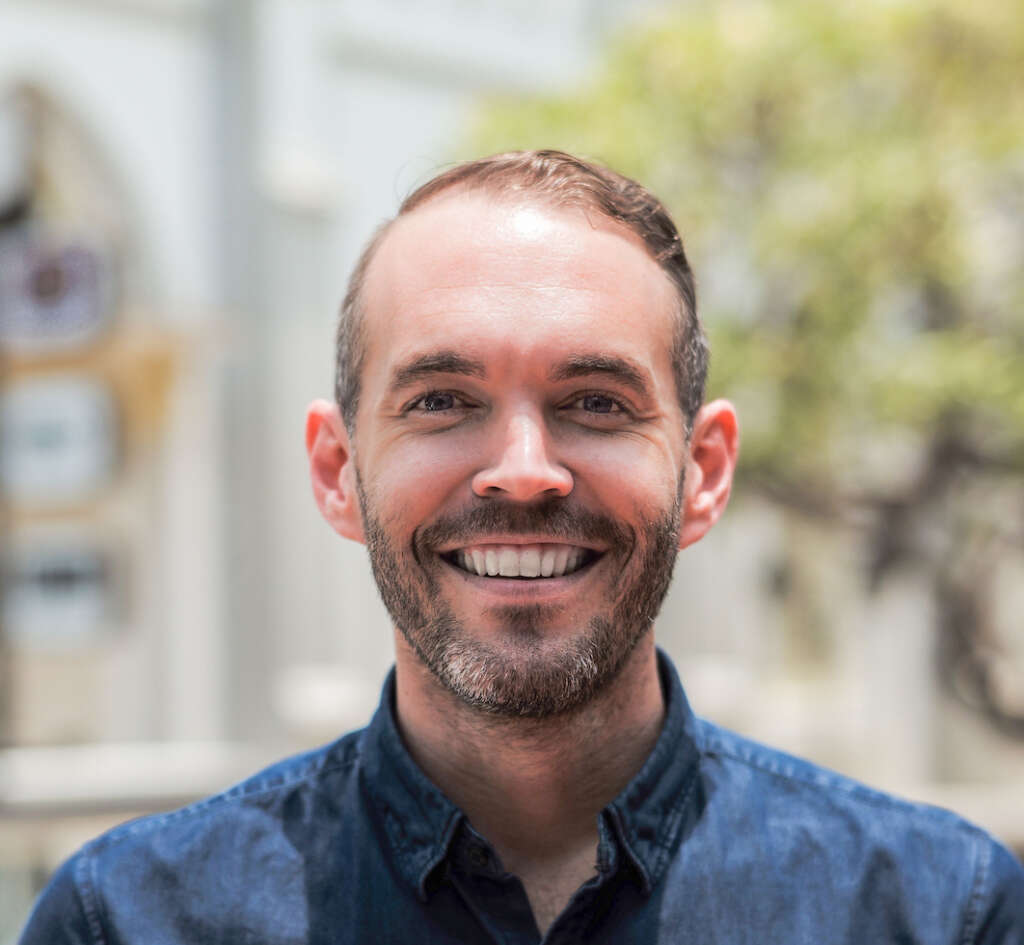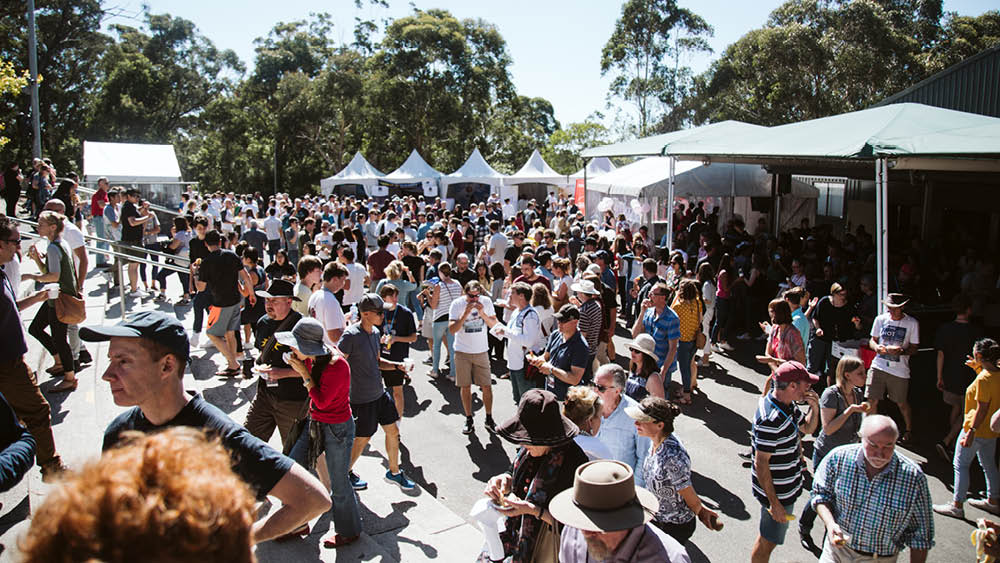When Dan Paterson presents the arc of the Easter story – from darkness, through doubt, to the dawn of new creation – it reflects the shape of his own journey with Christianity.
In his three talks at the upcoming Katoomba Easter Convention (KEC), the Brisbane-based pastor, public speaker and author will present three different scenes of the Easter story and how they change the script for how we live in the here and now.
“The three major topics I want to pick up on are darkness, evil, and suffering through the lens of Good Friday; meaningless and disillusionment as we wrestle in the shadow of Holy Saturday; and the longing for hope that there is something more through Easter Sunday. Those experiences are commonly three moments where, through signals of transcendence or solicitations of the spiritual, God reaches into otherwise secular lives, to prompt people to ask deeper questions,” Paterson tells Eternity during a Zoom interview.
“So spelling out some practical steps for us as Christians on how to do that is the goal, as well as showing how these three scenes of the Christian story give us confidence that the Bible gets things right and can be trusted.”
Dan was just nine when his own childlike faith was shattered by a serious car accident that injured his father, sisters and mother.
“I was brought up with Christian folks and no real barriers to belief in God. And so I probably imbibed a very simple or childlike belief in God as a youngster,” he recalls.
“When I was nine, we went on a family holiday, and were driving through the Blue Mountains near Katoomba when we had a terrible car accident. My mum ended up having severe head injuries as she head-butted the back of a truck, which crumpled the front left passenger side where she was sitting. She had to be airlifted to hospital for emergency surgery, experiencing ongoing brain damage as a result of her head trauma.
“Our family life has never quite been the same, and she has never been independent since, always needing my dad’s care. And so any childlike belief I had in God was shattered by that roadside.”
“You don’t know how long you have, so I wanted to know what makes for a good life.” – Dan Paterson
During his late childhood and teenage years, Paterson was overwhelmed by the themes of suffering and evil, or a sense that something was wrong with the world, which prompted him to take a step back from the God question.
“I probably just didn’t give any thought to it and lived mostly as an apatheist throughout my teenage years. Still, there was something about that tragic experience that prompted me to ask deeper questions,” he explains.
“And so when I was finishing up school, I was asking, ‘What am I meant to do with my life? Who do I want to become?’ I had seen the fragility of life, and so these were some pretty all-consuming questions. You don’t know how long you have, so I wanted to know what makes for a good life, a meaningful life. And it was in the process of asking those questions that I was prompted to read the gospel stories.”

Dan Paterson
While meeting the towering figure of Jesus in the gospels, Paterson started to find surprising answers to a lot of the questions he’d been asking.
“I didn’t necessarily embrace these answers easily, but towards the end of John’s Gospel, I found myself compelled by Jesus’ character and claims, especially the resurrection stories, and the change that had on the disciples. And when I read these summary words in John, ‘These are written so that you may believe that Jesus is the Messiah, the Son of God, and believing have life in his name,’ I remember just having this moment [where I thought], ‘Oh, I think I believe now. What does that mean for me?’
“And so the animating hope that comes in the aftermath of discovering that this is really true changes the way you see so many things, not just for my mum’s future or for all the other people that you’ve loved and lost, but also for how it changes the script for my life here. It made me want to live towards a bigger vision of reality than just my own personal happiness or fulfilment. Of course, the surprise being that when you throw your life in with Jesus, when you give it up for the sake of the gospel, you end up receiving a hundred times more.”
Another oddity of Paterson’s life story is that in high school he was terrified of public speaking.
“I did two weeks of a science dual degree before I was a Christian and said, ‘Nah, that’s not what I want to do.’ Theology has been my first and greatest love. But if you’d said to me at 18, or even starting Bible college, that public speaking would have been something to do with my calling, I would’ve pushed back very hard.
“It would’ve been my greatest fear throughout high school. You know, the old joke, I would much rather be in the coffin at the funeral than have to give the eulogy. That would have definitely been true in my case. Every time I had to give an oral examination in high school, I’d end up in a puddle of sweat from the nerves and the fear. So it’s definitely a surprise to me how God’s led me down that direction. I guess it’s something you stumble forward in.”
In this, Paterson draws comfort from the example of Peter, whose failure of courage after Jesus’ arrest does not prevent him from becoming a key spokesman for the apostles.
“It’s powerful to think of the person who will require so much courage to be a spokesperson for the apostles shrinking back when asked by teenagers, ‘Do you know him?’ And when you wrestle with those deep, humbling moments in the gospels you just think, ‘Ah, yep, this is something that points us towards the sufficiency of Jesus, to God’s purposes prevailing, and to the work of the Holy Spirit who can start with the raw materials that we give him, and then end up using us for things we never imagined.’”
“Christians shouldn’t be afraid to ask away with their doubts.”
One thing Paterson believes no Christian should be afraid of is questions about our faith and the reliability of the Bible.
After studying Theology and Apologetics in Australia and Oxford, Paterson founded a ministry called Questioning Christianity, and co-wrote a 2021 book of the same title with former Brisbane pastor Rian Roux. He explains that they wrote the book for sceptics, seekers and new believers.
“There’s a lot of Aussies who have an apprehension towards the God question, and are apathetic on whether or not the religious story has any import for their lives. But there’s also a lot of people that have grown up under the shadow of the church who have questions that were either discouraged or that no one was addressing, and so have wandered from the faith or have doubted the truth,” he says.
“We wanted to capture a title that really welcomes in both sides of that conversation and says, ‘Look, if the Christian story is true, if God lies at the centre of reality, if Jesus rose from the dead, then Christians shouldn’t be afraid to ask away with their doubts. Because the more we look into these things, the more you should walk with a quiet, humble confidence that the Christian story really does stand up to scrutiny and shed light on reality.
“So that’s been our disposition as a whole in engaging both in evangelistic work, as well as helping doubters and those who are on a path of deconstruction – an increasingly common path for those with hangups from their upbringing in different religious subcultures. We wanted to say, ‘It’s OK to ask questions; God is not afraid of your doubts. Just make sure you go looking for quality sources and are open to substantial answers, rather than just listening to one side of the conversation.’”
“We’ll be exploring how to have better God conversations that speak to the disillusionment of our time.”
Taking this to the Easter convention, Paterson will be joined on the platform by Ed Seltzer and Sam Chan, who will all address the theme of trust and confidence in God’s word in troubled and uncertain times.
“The dimension that they’ve asked me to do is more of a practical one, on how then do I go about living for the truth in a secular age?”
He will look at how Good Friday ends with a Roman soldier saying, ‘Surely this was the son of God,’ and how the shift in the Roman centurion’s attitude from the beginning to the end of that day came from his encounter with the character of Jesus.
“This is someone who’d likely crucified hundreds of other people before. Something was different about this man. So we’re going to lean into that as God’s response to evil and suffering in the world,” Paterson explains.
“And that something was different about this man might serve as a way we can subvert the dark shadow of the church’s past. How the bad church narrative gets undermined will be with Christians who point supremely to the goodness of Jesus, even as they stumble to follow him and live out his example.
“Those will be some of the practical steps that we spell out there. On the disillusionment one, a big one is learning to ask meaningful questions as people are wandering through the malaise of life. Secular people tend to be living towards something more than what the secular story can offer, as they are made in God’s image. By common grace, they are still living in some ways as though the Christian story is true. So we’ll be exploring how to have better God conversations that speak to the disillusionment of our time.
“Then when it comes to the resurrection, we’ll be diving into how the hope of the gospel is linked to the concept of sacrifice, as encountering the resurrection of Jesus changes us to live for something greater.
“If we know what our ultimate future is going to be, that changes the present script we adopt for our lives. C.S. Lewis once picked up on the critique that Christians are so heavenly-minded that they become of no earthly good. Simply put, the Easter story doesn’t let that happen, as the vision of God’s endgame animates us to live lives of humble confidence as future people now.”
KEC 2023 will be held in Katoomba from 7-10 April, where the theme is ‘Rock Solid: Trusting God’s Word in a World of Confusion’. You can register here.
Email This Story
Why not send this to a friend?




